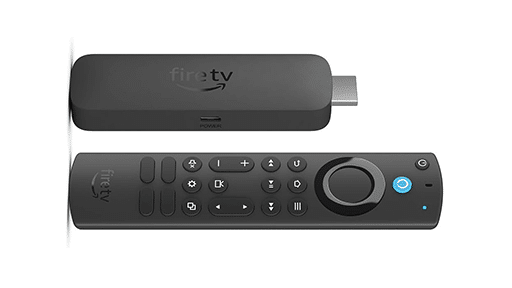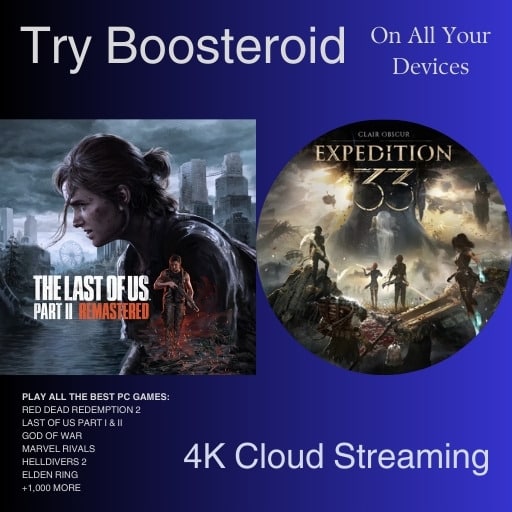
Gaming habits are evolving fast. A new report from 80 Level and Room 8 Group shows that Gen Z and Gen Alpha are already shaping the future of gaming. These younger gamers aren’t just influencing trends. They’re changing how games are made, shared, and streamed.
They’re mobile-first. They expect instant access. And many already see game subscriptions as standard. Studios, publishers, and platforms need to keep up or risk falling behind.
And yes, that includes cloud gaming.
The report explores how these generations are shifting expectations across the board, from faster content drops and social sharing to always-on access and hybrid platforms. Let’s look at what that means and why cloud gaming could be a bigger part of the picture than you might expect.
Nine Experts With One Shared Message
What stood out across every conversation? The lines between AI, cloud, and UGC are blurring fast. Each one feeds into the other. Tools that use AI need strong infrastructure. Cloud gaming can unlock faster access to UGC. The growth of one area is pushing the others forward.
Here’s our full breakdown of how cloud gaming is evolving, based on insights from the same report.

What AI, Cloud, and UGC Are Doing to Game Development
Game development is changing fast, and much of that comes down to three forces: AI, UGC, and cloud technology. The report highlights how these technologies are actively changing how studios build, test, and deliver games.
AI is helping speed up workflows. Developers are using it for world-building, animation, and even NPC behavior. While it does not replace human creativity, it gives teams more time to focus on design. That means studios can prototype ideas and make adjustments earlier in development.
The chart below illustrates how AI is being adopted in creative industries, including game development. It is helping teams complete tasks faster and improve content quality.

Cloud tools are also reshaping how games are made and shared. Instead of shipping builds or waiting for downloads, teams can test remotely and work across multiple locations in real time. This improves QA, streamlines early feedback, and reduces time lost to technical steps.
User-generated content is part of that shift too. UGC is no longer just post-launch content. It is something studios think about from the beginning. Mod tools, sandbox systems, and creator features now influence how games are designed.
These technologies are not operating in isolation. AI makes content creation faster. Cloud tools deliver those builds to teams and testers. UGC shows how real communities interact with those systems. When these parts work together, the development process becomes more flexible and collaborative.
Gen Z and Gen Alpha Want More Than Just Games
For Gen Z and Gen Alpha, gaming isn’t just about finishing a story or climbing the leaderboards. It’s about connecting with others, expressing themselves, and shaping their identity. The report shows that self-expression and customization matter just as much as gameplay.
That’s where UGC comes in. Games like Roblox, Minecraft, and Fortnite have helped normalize building, modding, and sharing as core parts of play. The ability to build, mod, and personalize is no longer a bonus. It’s expected. These generations want tools that let them create maps, characters, or entire game modes. It’s not just about playing. It’s about making something that feels personal and worth sharing.

Social interaction is just as important. The report points out that for many younger gamers, a game is where they go to hang out. Chat features, co-op tools, and ways to share creations aren’t just extras. They’re part of the core experience.
Digital identity also plays a growing role. How someone looks, what they share, and the content they create all shape how they’re seen online. That sense of identity carries across platforms. Whether in a casual mobile game or a massive online world, younger gamers expect to be seen as more than just a user.
They don’t just play games. They live in them. That shift is already changing how games are developed and supported, and it’s only going to grow.
What Gen Z and Gen Alpha Expect from Game Studios
For Gen Z and Gen Alpha, it’s not just about the games. It’s also about who’s making them and why. These generations expect transparency, values, and flexibility from the studios behind the games they play. They’re paying attention to more than just trailers and patch notes.
If a studio doesn’t align with their views or comes across as out of touch, younger gamers take notice. Brand loyalty isn’t automatic. It has to be earned, and it can be lost quickly. A one-time controversy or tone-deaf campaign can push them away for good.
This doesn’t mean studios need to weigh in on every issue. But it does mean that how they treat their communities, their employees, and the world around them matters. You can see this in how Gen Z and Gen Alpha respond to things like unionization, inclusivity, or even environmental impact. They’re watching, and they care.
At the same time, they want studios to be flexible. That might mean supporting mods, cross-play, or unique playstyles. It also means listening to feedback and not doubling down when something clearly isn’t working. Authenticity goes a long way.
UGC and community features tie into this too. When studios open up their tools and let gamers be part of the process, it builds trust. You’re not just a consumer anymore. You’re part of the world the studio is building. That shift is what younger gamers want more of. As the chart below shows, UGC is no longer a side feature. For many Gen Z and Gen Alpha gamers, it’s central to how they experience and shape their games.

How Cloud Gaming Reflects Gen Z and Gen Alpha’s Values
Cloud gaming fits naturally into the habits and values of Gen Z and Gen Alpha. These generations grew up with everything just a tap away. They expect instant access, not just in media, but in how they experience games too.
They don’t want to wait for long downloads or juggle hardware requirements. Gen Z and Gen Alpha want to click, play, and move on if it’s not for them. That expectation makes cloud gaming feel like a better match than traditional models. You can stream a game on a laptop, tablet, or TV and never worry about storage space. It’s about flexibility, not commitment. These are some of the top reasons younger gamers are turning to cloud gaming, according to the report.

Younger gamers also like to experiment. Cloud gaming supports that by removing barriers. Curious about a new genre? Try it. Not sure about a game? Stream a demo. Many are fine with short sessions across different platforms. They care more about convenience than loyalty to one device or format. For cloud gamers, that means faster updates, fewer barriers, and a smoother path from curiosity to gameplay.
All of this ties into the broader shift we covered in our article on 2025 cloud gaming trends. Instant access, cross-device freedom, and ease of use aren’t just nice-to-haves anymore. For Gen Z and Gen Alpha, they’re expected.
That doesn’t mean traditional gaming is going away. But it does mean studios and platforms need to think about how they’re meeting this generation where they are. If the experience isn’t fast, smooth, and flexible, younger gamers might simply move on. That’s why cloud gaming isn’t just part of the future. It’s becoming a preferred choice for many. And for those already using cloud gaming, it’s clear this model fits how younger generations want to experience games.
Young Gamers Are Driving Big Change
Gen Z and Gen Alpha are reshaping the industry. Not by playing more, but by playing differently. They expect games to be accessible, connected, and meaningful. That means studios cannot just deliver good gameplay anymore. They need to consider values, identity, and the social layer wrapped around the game.
Cloud gaming, UGC, and AI are not just buzzwords. For younger gamers, they are tools that support how they want to play and connect. Instant access, cross-platform support, creator tools, and responsive updates are now expected. The old playbook does not work when your audience wants change, creativity, and transparency.
If the industry wants to keep up, it has to listen. These generations are not waiting quietly. They shape trends through how they play, what they share, and what they support. The studios that adapt will thrive. The ones that do not may struggle to stay relevant. For cloud gamers, that means better experiences are coming. But, only if companies take the shift seriously.
We will keep tracking how Gen Z and Gen Alpha are shaping the future. From creative tools to monetization shifts and beyond.
What about you? Have your gaming habits changed? Are you spending more time building, streaming, or collaborating than before? Let us know in the comments. We would love to hear your take.
As always, remember to follow us on our social media platforms (e.g., Threads, X (Twitter), Bluesky, YouTube, and Facebook) to stay up-to-date with the latest news. This website contains affiliate links. We may receive a commission when you click on these links and make a purchase, at no extra cost to you. We are an independent site, and the opinions expressed here are our own.











Fantastic article! I’ve shared this with my e-sports lecturer colleagues. Some great insights here.